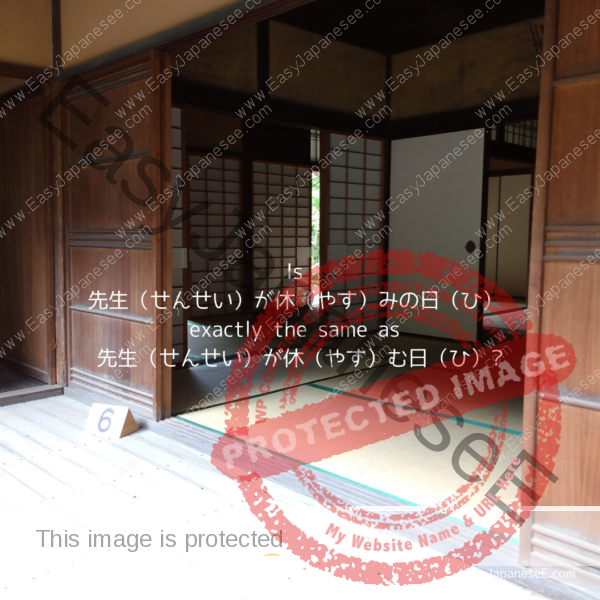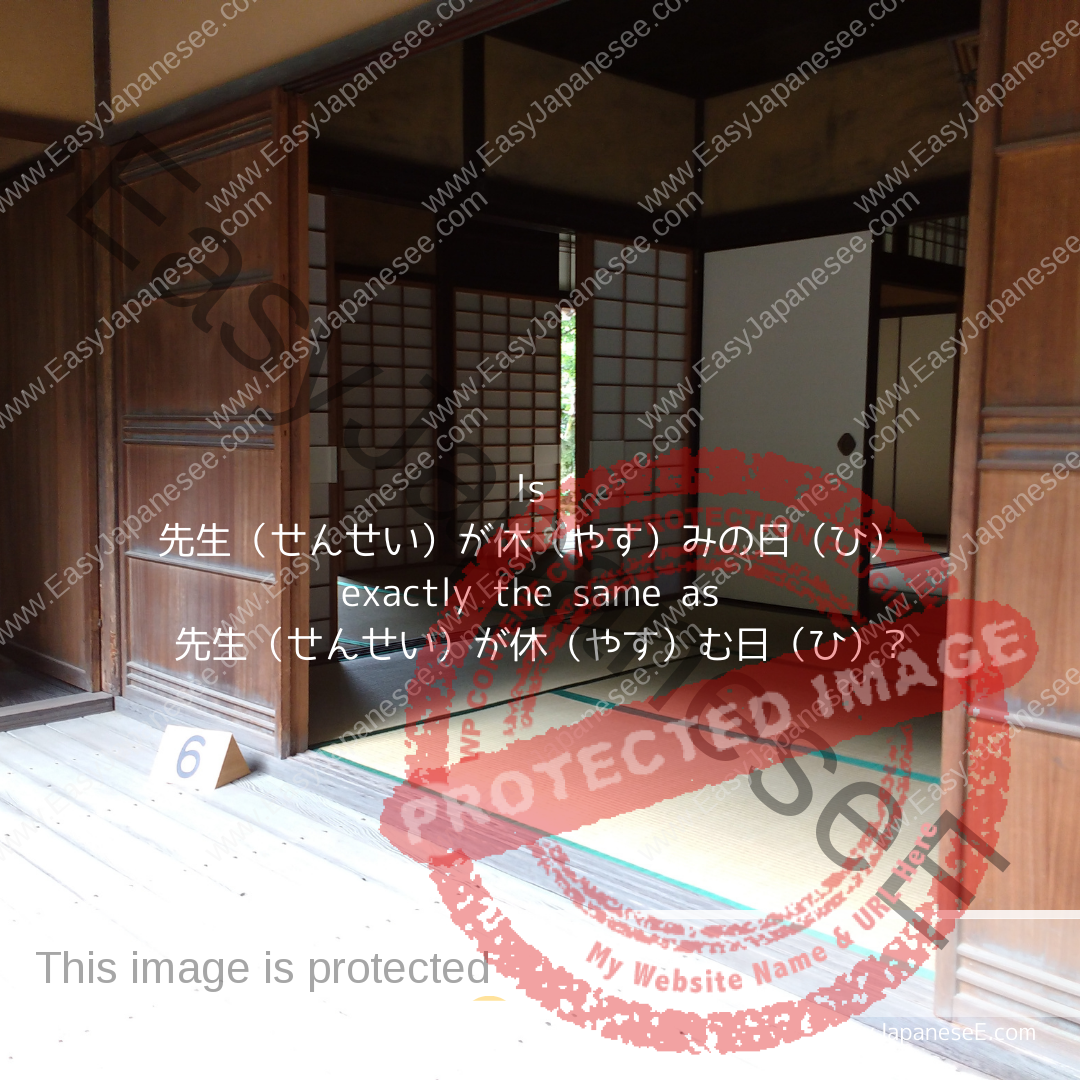
Is 先生(せんせい)が休(やす)みの日(ひ) exactly the same as 先生(せんせい)が休(やす)む日(ひ)?
Both of these phrases use a contact clause and from a student’s point of view, they are the same. That is, on that day, the teacher doesn’t turn up to school. However, from the teacher’s point of view, they could be different. Can you explain how?
I will rewrite the contact clauses as normal sentences here in [ ].
- [先生(せんせい)が休(やす)みです] + 日(ひ)= the day + when + [the teacher is off (duty)] – it is not 100% decisive whether 休み here means just “off” or “off-duty.” We need some context for that. However, if a part-time teacher is talking about the days he/she is not teaching, this is the expression to use. We cannot use the alternative below.
- [先生(せんせい)が休(やす)みます] + 日(ひ)= the day + when + [the teacher takes a day off] – this means the teacher is meant to work on the day normally but for some reason, he/she has asked for a day off.
Now I want to draw attention to the の of 先生(せんせい)が休(やす)みの日(ひ)
When the content of a contact clause ends in a noun + だ/です, we use the particle の to connect the contact clause to the noun that is modifying.
子どもが小学生のお母さん
こどもが しょうがくせいの おかあさん
a mother whose child is a primary school pupil (or simply, a mother with a primary school aged child)父親が牧師の家庭
ちちおやが ぼくしの かてい
a family in which the father is a (church) minister水曜日が定休日の店
すいようびが ていきゅうびの みせ
a shop that is closed on Wednesdays.愛がテーマの小説
あいが テーマの しょうせつ
a novel whose theme is love扉の開閉が自動のバス
とびらの かいへいが じどうの バス
a bus whose door is automatically opened and closed (or simply, a bus with an automatic door)
If you’d like more practice questions like this, EasyJapaneseE’s basic contact clause module has a lot of questions you can practise this pattern on. Click the link below for detail.
EasyJapaneseE’s Basic Grammar Exercise Modules
Following short modules are available for subscription! Click the name of a module for more information.

